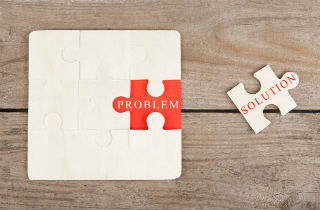By Jim and Caroline Vogel
Sleeping problems can lead to health issues
Not getting enough sleep can be detrimental to both your physical and mental health. Prolonged sleep deprivation can lead to:
- Diabetes
- Heart disease
- Hypertension
- Obesity…
…not to mention all of the mental health issues that come along with it. Poor decision-making, bad moods, a lack of motivation, and a distorted perception of events can be the result of sleeping problems, as well.
What can you do to finally get a good night sleep? Can you restore your natural sleep cycle without taking sleeping pills? In this article we suggest 5 things you can do to fall asleep easier and stay asleep until rested. At the end, we invite your questions in the comments section. In fact, we try to get back with all our readers who have real problems both personally and promptly.
Sleep solutions for Seniors
The older you get, the more important it is to take care of your body, and a good night’s sleep is a vital part of that. Below are some tips to help you get a full sleeping cycle each night.
1. Increase Your Body’s Melatonin
Melatonin is a hormone that is produced by your pineal gland, and can have a direct effect on your ability to sleep well. While there are supplements available on the market, there are also ways to boost your melatonin level naturally. Artificial lights in the evening are said to suppress your body’s production of the hormone, so it is suggested that you try low-wattage bulbs (when appropriate), and turn off any screens you may watch (TV, computer, tablet, phone) at least an hour before you go to bed. Try reading a book or a magazine instead.
There are also foods you can eat that aid your body in producing melatonin. Cherries (specifically tart cherries), turkey, chicken, and almonds are said to be among the most effective. This leads us into our next tip.
2. Eat The Right Foods
In addition to those foods mentioned above, there are other good sources of vitamin B6, which helps your body produce melatonin, including fish, such as:
- tuna
- salmon
- halibut
Other foods that are said to possess properties that help you sleep include:
- bananas
- chamomile tea
- cheese and crackers
- chickpeas
- elk
- fortified cereals
- honey
- hummus
- jasmine rice
- kale
- lettuce
- lobster
- passionfruit tea
- pretzels
- walnuts
- whole grains
- yogurt
3. Don’t Eat The Wrong Foods
Just as eating the right foods can help you sleep better, eating and drinking the wrong things can have an adverse effect. Obviously, you’ll want to avoid caffeine, especially in the later hours of the day. You’ll also want to avoid foods that can give you heartburn and acid reflux issues like pizza and other things heavy on tomato sauce, as well as citrus fruits and juices. You’ll also want to avoid foods and drinks high in sugars as well as spicy foods and burgers before bedtime.
4. Keep A Regular, Napless Sleep Schedule
In order to regularly have a good night’s sleep, you should try to train your body to do so. AARP Medical Plans suggests going to bed and waking up at the same time each day so that your body can get used to a sleep pattern. It also advises against napping as it can interfere with regular sleep. When you do need a nap, it recommends limiting it to 20-30 minutes early in the day.
5. Exercise, Of Course
Exercise is one of those things that seems like it’s a cure for just about everything. Despite the many, many health benefits of exercise, so many people just don’t get nearly enough of it. It can be particularly difficult for many seniors to get enough physical activity, but in the end, it needs to happen. A body that is active throughout the day is a body that will rest better at night.
Each of these tips can be implemented without resorting to sleep aids, which can become problematic.When you’re able to get regular, good sleep, you’ll not only be healthier for it, but you’ll feel better from day to day.
Sleeping without sleeping pills questions
Do you sometimes struggle with falling asleep, or know a Senior friend who may need help? We hope these alternative solutions can help you beat insomnia without needing any sleeping aid. If you have any additional questions, please post them in the comments section below. We try to reply to all legitimate questions with a personal response and as soon as possible.









Related Posts